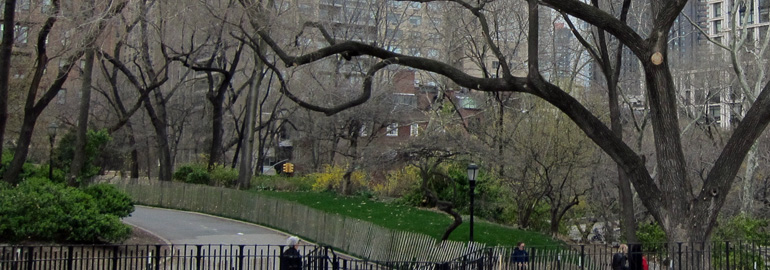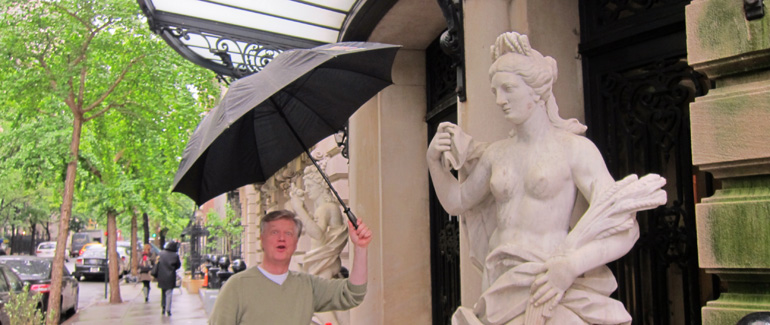
In a review, at The Nation, of twelve recent books about the plight of higher education, William Deresiewicz writes,Â
Our system of public higher education is one of the great achievements of American civilization. In its breadth and excellence, it has no peer. It embodies some of our nation’s highest ideals: equality, opportunity, self-improvement, useful knowledge and collective public purpose… Now the system is in danger of falling into ruins.
After meditating on this passage for a few days, I’ve decided that it provides an accurate mission statement for the great American state universities (and the larger private ones as well), but that its objectives have never been persistently realized. Ideals are targets, and American leaders of the past can be praised for having aimed at “some our nation’s highest” in the design of a public university system. But in order to approximate ideals in reality, you have to understand the reality that you’re working with, and candid self-assessment has never been a marked feature of the American character. We’re optimists and visionaries who don’t in fact see very clearly with our eyes. The system has always been in danger of falling into ruins, much like an overheated real estate development that never gets to the point of housing a living tenant.Â
I am not a scholar; I haven’t studied facts and figures. I’m willing to rely on those who have, such as William Arum and Josipa Roksa, whose Academically Adrift, which figures among the books under Deresiewicz’s review, suggests that students aren’t learning much of anything in college these days. But my willingness is born of experience: when I look round the Internet, for example, I see hosts of very bright young people who are teaching themselves things that they ought to have been taught in college. The only thing that’s new about this state of affairs is that the Internet provides a medium for observing it on a much larger scale than was available before. Even in the days when students put in longer hours studying than they do now, the objective was rarely to attain true understanding of a subject. The point was to pass tests. Then as now the only way to learn about something was to write about it in a manner that would meet a modest level of critical inquiry; then as now the only way to evaluate such writing was to read it and to grade it, something most intelligent people would rather not do. Most writing is not pleasant to read. And when it is, the disappointment of a gifted student’s sudden unsuspecting drop into error can be maddening. With very, very rare exceptions, young minds have little of interest to contribute to the general discussion of ideas. But they must be educated if that discussion is to continue, and the fact that educating them is in large part a tedious slog must be faced squarely. Going to college may be fun overall, but education is always going to be as painful, and in much the same ways, as any other form of demanding exercise. Clever students have been getting better and better at avoiding the rut of education for nearly fifty years, ever since the introduction of course evaluations. That really has to stop.
I was a very clever student: I managed to avoid ever having to parse Caesar’s Gallic Wars. I was also bright enough to see where this cleverness would lead me if unchecked, and before it was too late I signed up for a Great Books Program, five semesters of talking about thinkers from the pre-Socratic to the post-Revolutionary. (As I recall, I bluffed my way through discussions of only one book, Moby-Dick, a book that, forty years later, I put down as utter rubbish; everything else I mostly read.) In other words, I surrendered my options and read what I was told to read. I doubted that the reading list was as good as it might be, but flush with youthful arrogance as I was I was also determined to get something out of school beyond a passel of interesting personal experiences. I’m reminded of a nightmare that used to trouble me: The print in a book that I was reading in my dream would grow fainter and fainter, as a realization slowly dawned that the words were becoming invisible because I hadn’t written them yet. This always woke me up with a shudder. That’s what college seems to have become for many students: an environment in which they produce everything out of themselves.Â
The American university system underwent a tremendous expansion after World War II; so did the foundations of learning, which would soon support such unimagined realms as the superstructure of information technology. The old model of university education, germinated in Enlightenment Germany and polishe d to a high gloss at dozens of late Nineteenth-Century colleges and research universities, was primarily an apprenticeship system in which the stock of knowledge was transmitted from teachers to students. The stock of knowledge was known to be expanding, but the expansion was thought to be manageable because professors increased their sub-specialities. After World War II, it was increasingly understood that the unknown — the unmanageably learnable — vastly outbulks the masteries of credentialed professors. In 1800, it might not have been possible to read all of the books that were thought to be important, but it was certainly possible to house them all in a library. This was not the case in 1950, by which time the authority of transmission that foremerly underwrote the virtue of traditional education had evaporated. But the model remained, and to some extent it still with us in the liberal arts graduate departments with which Deresiewicz begins his review. It made so little sense, however, that the sprawling American university saw no reason not to corrupt itself by recruiting graduate students as the underpaid teachers of undergraduates. That was the end of the apprenticeship system: graduate students took the jobs that former students a couple of years older, on the other side of completing doctoral programs, ought to have had. It hasn’t taken long for this cannibalism to create a small but powerful class of tenured professors who have no more interest than any other powerful group in expanding their ranks and diluting their privileges. Whether this class is dooming itself to extinction is only a variant of the question that confronts most modern institutions, which, as mature institutions always and everywhere do, have concentrated power in ever fewer hands and increased the inequality of access to resources of all kinds.Â
I don’t believe that the modern research university has ever justified itself as a provider of the kind of education that matters in civil society, which, as I’ve said, is a matter of training young minds to participate in public discussion. (I shy away, in these polarized times, from all thought of “debate”). It seems obvious that a solid grounding in the history of the nation’s problems would be the one indispensable subject, but this has never been on offer in the way that, say, art-history survey courses used to introduce students to centuries of imaganative creation. From what I can tell, colleges and universities have dismissed history surveys as belonging to the high-school curriculum. But what high school students can’t be expected to digest is the contentiousness of American historiography: true history is never settled, and can never be reduced to the tenets of a creed. (Doubtless it would be grand if high-school students could be required to memorize a lot of dates, freeing college students to explore their significance.) Nor has the research university been adept at inculcating social values, perhaps for the simple reason that the academic knowledge is diffracted into shards of sub-specialty. The ideal university, it seems to me, would prepare students for what I call the social paradox: the strength of any society is a function of its constituents’ cooperative pursuit of distinctions and differences. “Knowing thyself” is only part of what a good education imparts; figuring out where you might fit and what you might improve — matters that require learning a lot about other people — is just as important.Â
I see no reason for higher education to be as expensive as it is. The current university, like some sort of interplanetary rocket, consists of three stages, with an athletic and quality-of-life stage consuming most of the resources, a capital-intensive stage of scientific research consuming most of the rest, and only a tiny nugget of money going to the actual teaching of undergraduates. I don’t see why these three stages ought to operate as parts of a unit. Graduate professional schools ought to be free-standing, and vastly less numerous than undergraduate schools. To me, the model college professor is a more sophisticated high-school teacher, not a grudging research scientist. It is likely that secondary and higher education might be unified, with some sort of non-academic national service interposed at varying points. As for athletics, their presence on the academic campus has always been the snake in the garden. How wonderful it would be if national service, and not education, were infused with the atmospheric attractions of today’s university life!
The origins of the university stretch back a thousand years, and its rich heritage must not only be preserved but kept alive. But whether the university has ever been or will ever be suited to equipping the citizens with the knowledge and intellectual habits that a liberal democracy depends on is a question that ought to be answered without reference to ideals.









